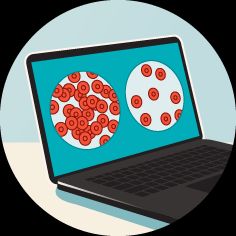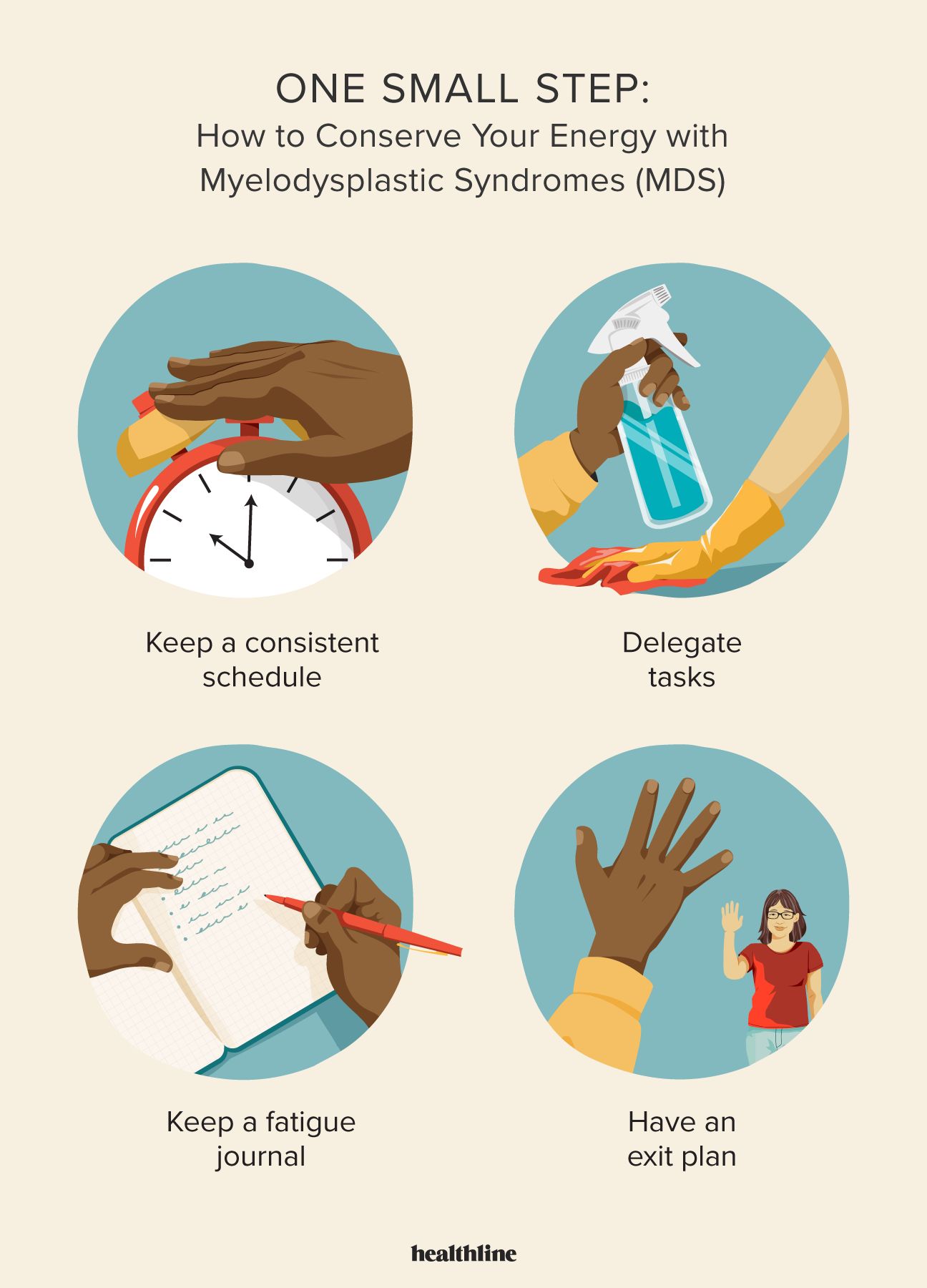MDS can cause a significant lack of energy that reduces your quality of life. These tips can help you better manage MDS fatigue.
Myelodysplastic syndromes (MDS) is a type of cancer that shows up as a group of conditions affecting your bone marrow and blood. “Myelo” refers to the bone marrow, and “dysplasia” describes atypical structure.
In MDS, the stem cells in your bone marrow produce abnormal and ineffective blood cells. This means that you do not have enough healthy platelets, red blood cells, or white blood cells.
MDS can cause excessive, ongoing fatigue that can make daily life challenging. Although many people with MDS also have anemia, treating anemia does not always resolve MDS-related fatigue. You may experience persistent exhaustion that affects your mind and body.
By finding ways to conserve your energy, you can improve your overall quality of life with MDS. Here are some ways to get started for long-term wellness.
Good sleep hygiene practices can help you get better nighttime rest. By going to bed at the same time every night, you can set your body up to be better able to go to sleep.
Your sleep environment
Another way to manage fatigue is through activity pacing. This means that you do the tasks you can during the day, in between planned periods of rest. The idea is to conserve energy by stopping before you get tired.
You might choose to share your MDS journey with others. Consider telling family and friends how fatigue makes you feel. Ask for help with tasks such as meal preparation, laundry, cleaning, and errands.
You can also work as a team to complete tasks. For example, you might load the dishwasher but ask another person to unload it. Or you handle cleaning the countertops and sinks while someone else takes care of floors and bathtubs. You can be creative in how you divide up everyday tasks.
If you’re working, you might want to take on fewer duties or change the setup of your position. Before talking with your employer, you might consider discussing your concerns with a professional counselor who can help you understand your legal rights and options.
By delegating some routine tasks, you can conserve energy for activities you enjoy. You’ll also have more energy for exercise, which can improve your health with MDS.
Fatigue feels a bit different for each person with MDS. A fatigue journal can help you track your individual symptoms. You can spot patterns in your energy levels and see when you’re most tired.
Perhaps fatigue hits you most profoundly at a certain time of day, such as midafternoon or early evening. Maybe a certain activity, like vacuuming or a staff meeting at work, leads to a loss of energy.
You can use a symptom tracker designed for people with MDS or just a simple notebook. You might include the date, time, activity, and severity of fatigue in your log.
You can use this information to schedule activities at the times when you tend to feel the least fatigued. As you keep using the tracker, you’ll see how your schedule adjustments are helping you conserve energy.
Fatigue from MDS can have a negative impact on your quality of life, including your social life. You might feel less able to join social activities that you would usually enjoy, or you might have limited energy for events or occasions.
You can find a happy medium that allows you to socialize but still conserve your energy. Here are a few ways to find your comfort level with social events:
- Chat with the host before a private event to tell them you might have to leave early because of health concerns. This can help prevent hurt feelings or embarrassment. The host can also help you leave early without disruption.
- Arrange for separate rides for yourself and your companion so that you can leave separately if needed. If you don’t have separate vehicles, consider keeping a rideshare app on your phone or having the number of a local taxi service.
- Buy refundable event tickets. This gives you the option to return tickets if fatigue stops you from attending the event when the time comes. If there are no refundable ticket options, consider your reselling options in case you have to cancel.
- Suggest alternatives to high energy social activities. Sometimes you might feel like having a long dinner at a restaurant with friends, while at other times you might prefer sharing a pot of tea at home. Offer another option for getting together if you don’t feel up to particular plans.
You can manage MDS fatigue with a few strategies to conserve your energy. As some small steps, consider maintaining good sleep hygiene, keeping a log of when you experience fatigue, sharing or delegating tasks, and socializing differently.






